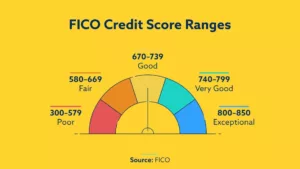Question: In 2013, I was going through some financial troubles and had a credit card go into charge off. I never received a letter requesting payment or informing me of the closed account. I paid my last payment to the CC in February 2014 with the account being closed 2 days after my last payment. The CC was reported (according to researching my credit reports from all 3 bureaus) as charged off on 7-1-2014.
Please note I have not received collection notices or 1099 from the institution for the charge off. Approximately 6 months ago the financial institution began reporting the charge off amount as delinquent monthly splitting the amount due in half. This has lowered my credit score by 40 points in that time.
What are some viable options to repair this situation? I am unclear if this practice is legal based on advice from above and before I contact the institution I would like to have some further direction.
Also of note, I have excellent payment history on all accounts other than this one charge off. At the same time, I did have additional accounts I was struggling with but was able to reach an agreement with the financial institutions to avoid charge-offs or further issue with the accounts.
I would have made arrangements with the charge off in example had I received notices or been given the option. Thank you in advance!
According to the Equal Credit Opportunity Act, creditors can close an account for delinquency, inactivity or default without notice.
Credit card issuers are allowed to cancel your account if you fail to uphold your end of the card agreement. Paying late (or not at all), going over your credit limit, failing to comply with your agreement or filing for bankruptcy are all legitimate grounds for closing an account – with no notice required prior to closing your account.
And, there is no law that says a customer must be notified when an account is charged-off.
There really isn’t a course of action to take, at least none that I see, to argue not receiving notice of account closure or charge-off. In the end, you are responsible for being sure the bill is paid on time, even if you don’t receive the billing statement.
What the law says is that if a creditor charges off your account it must notify the credit reporting agencies. The creditor must tell the reporting agency the date your delinquency first began. That date is imperative in determining how long the debt can continue to show up on your credit report.
That date should not change if the account is transferred from the creditor to a collection agency or from one collection agency to another, whether you make a payment, or dispute the account.
Because your credit is now in good standing could be the fact that the creditor decided to place the charge-off on your credit reports at this point. You see this often when consumers clean their credit to purchase a home. They begin applying for mortgage loans then surprise, up pops an older charge-off account.
A creditor knows once your credit rating is in a good position, you want to keep it that way. Plus, hardships don’t last forever and you may now be in a better position to pay the debt.
If there are no inaccuracies to dispute, then you must pursue other options.
One option would be payment in full or settle for less. Payment in full or a settlement would stop any monthly reporting of the charge-off and bring the amount owed to $0. A zero balance will prevent the unpaid debt from being included in your amounts owed category. Amounts owed (credit utilization) accounts for 30 percent of your credit score. High utilization can hurt a credit score.
But the best option would be payment in exchange for deletion. If you talk to someone over the phone, get their name, employee and telephone extension number along with the date and time you spoke with them. Once you have an agreement let them know you will either email or send a letter in the mail of the pay for delete agreement. You must get a pay for deletion in writing prior to making any payment.
You appear to have great negotiating skills as you handled other delinquent accounts and now have an excellent payment history. It may take a few calls and letters before you get someone in the right positiion to agree to pay for delete but it's worth a try. If you can't get that, go for a settled option to at least keep the charge-off from reporting a monthly balance.
The best of luck to you!

















